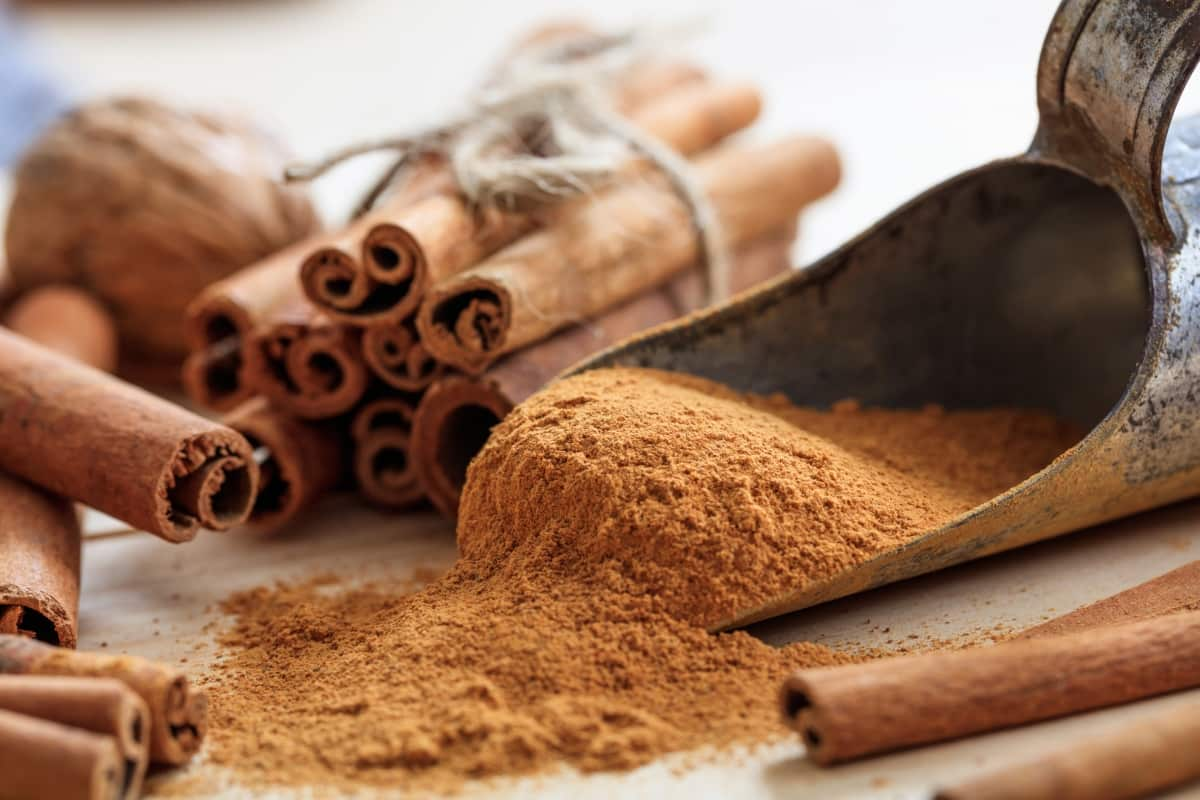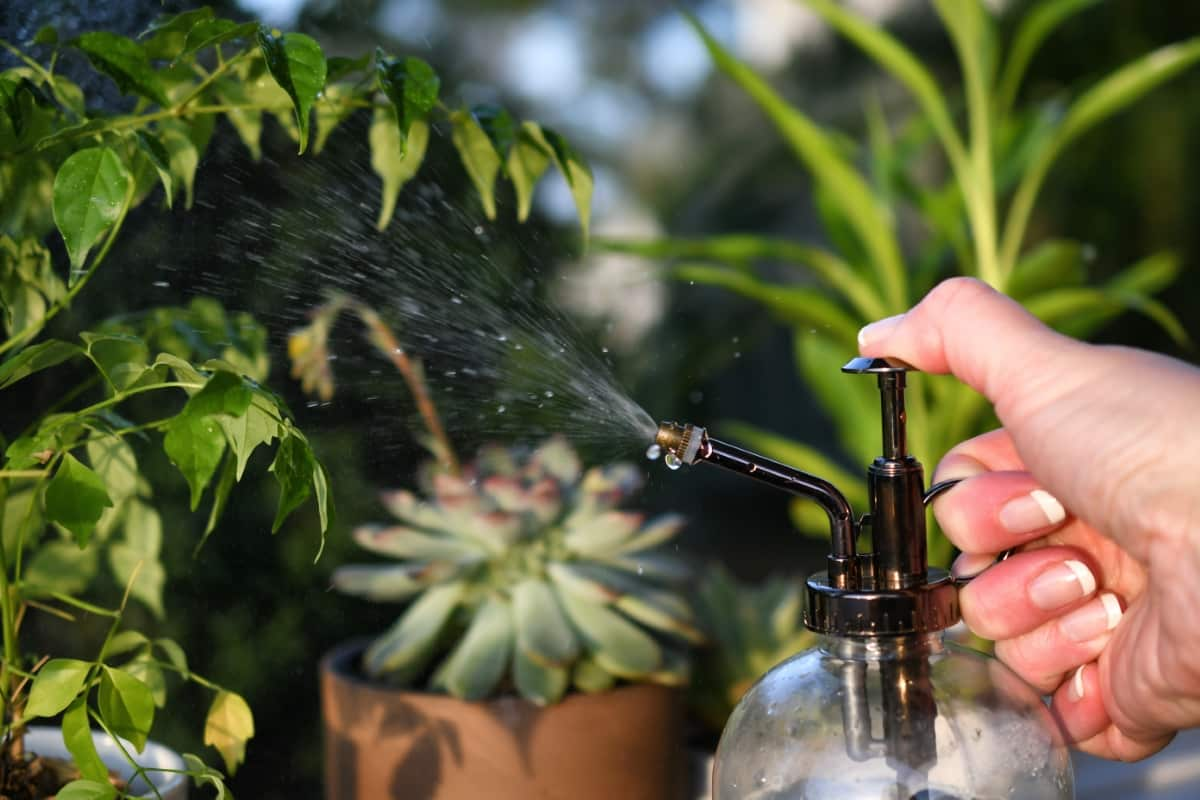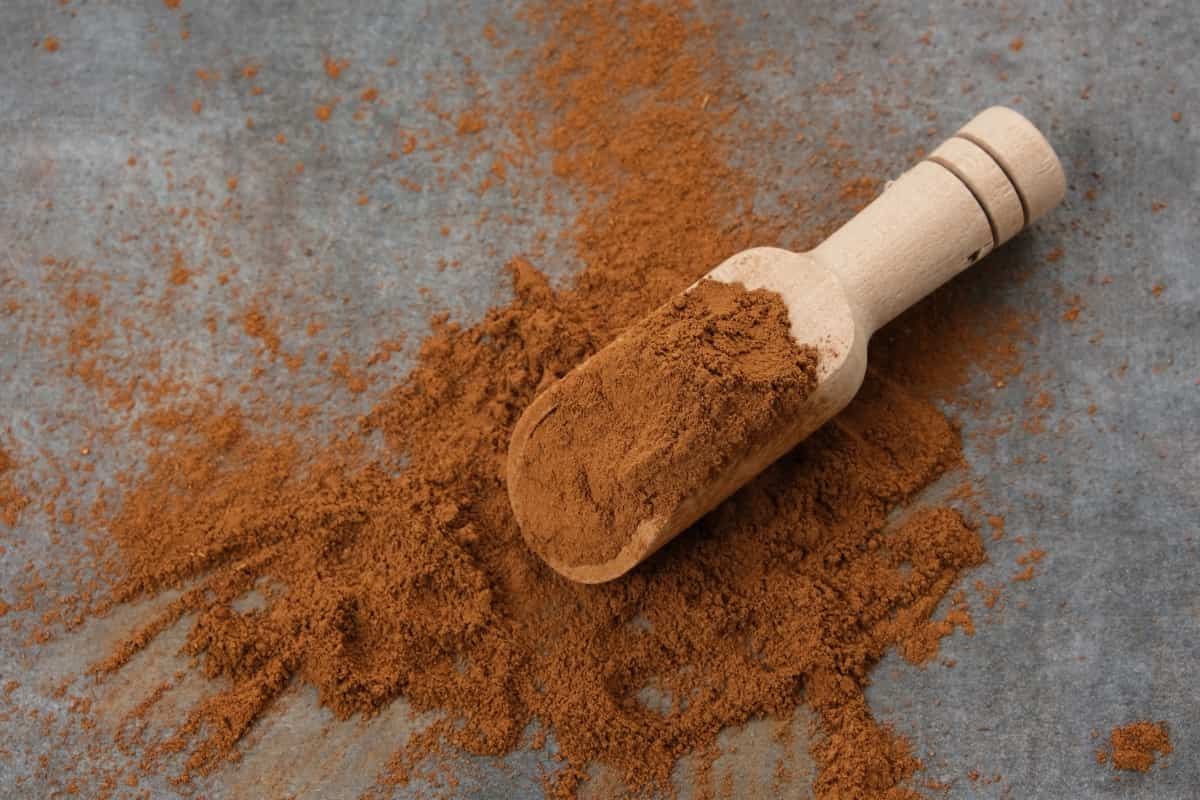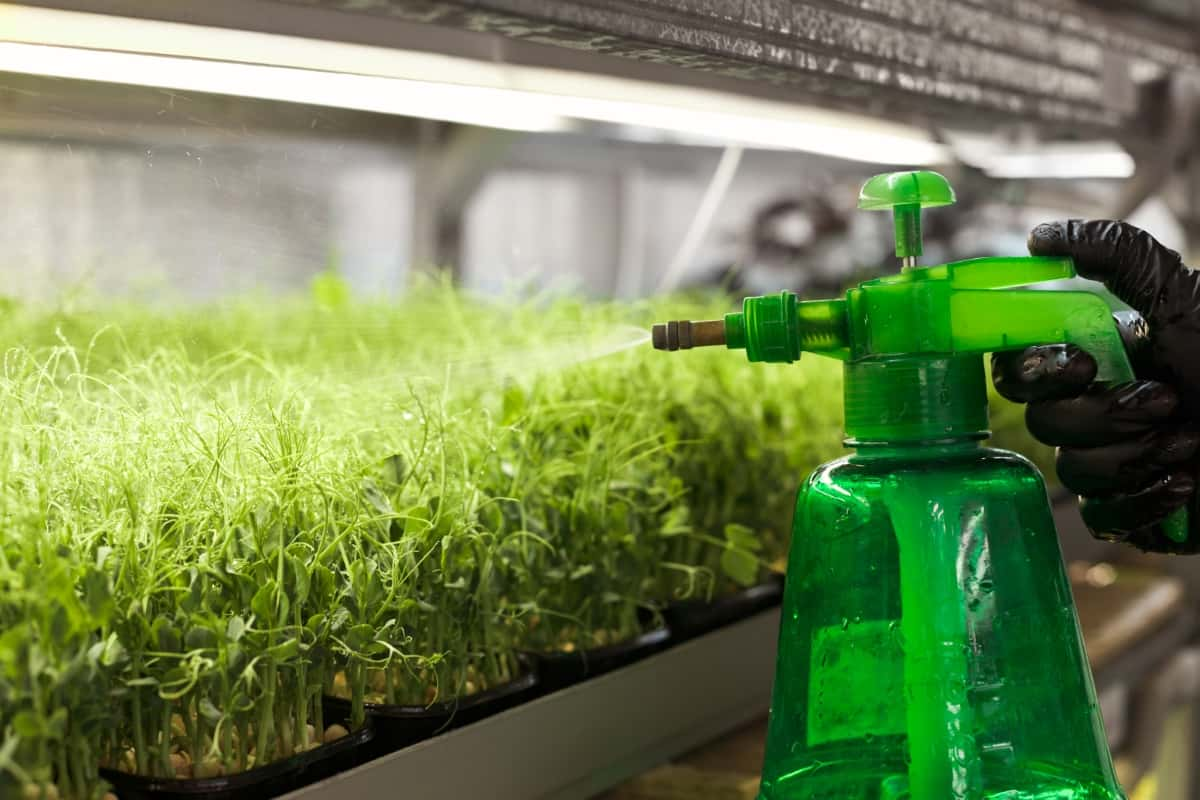The Cinnamon, popularly known as Dalchini (Cinnamomum zeylanicum), belongs to the Family Lauracae. Cinnamon on plants plays a crucial role in promoting their overall health and well-being. This powerful spice acts as a natural fungicide, helping to protect plants from harmful fungal infections that can stunt growth and cause disease.

Fungicide
When used as a natural fungicide, Cinnamon can help protect your plants from harmful fungal infections that can stunt growth and lead to diseases. The anti-fungal properties of Cinnamon make it a great alternative to chemical-based fungicides, especially for those looking for more organic solutions in their gardening practices. Cinnamon can help prevent common plant diseases such as powdery mildew and damping-off. Sprinkle ground Cinnamon around the plant base or mix it with water to create a spray for effective fungal control without any harmful chemicals involved.
Ant Deterrent
The scent of Cinnamon acts as a natural deterrent for ants, preventing them from making a home in your garden. Sprinkle Cinnamon around the plant base or create a barrier with it to ward off these unwanted visitors. Cinnamon provides a safe and effective solution for ant control. Plus, it’s environmentally friendly. By harnessing the power of this aromatic spice, you can protect your garden without compromising on safety or sustainability.
Mushroom Deterrent
Mushrooms can compete with your plants for nutrients and space, disrupting their growth and overall health. By sprinkling a bit of Cinnamon around the affected areas, you can create an inhospitable environment for these unwanted fungi to thrive. The anti-fungal properties of Cinnamon help prevent mushroom spores from germinating and spreading. This natural deterrent not only keeps your plants safe but also maintains the aesthetic appeal of your garden.
In case you missed it: Cinnamon Tree Planting, Tips, Ideas, And Techniques

Rust Prevention
Cinnamon is not just a flavorful spice for your kitchen; it also has remarkable benefits when used on plants. The advantage of Cinnamon when applied to plants is its ability to prevent rust. Rust, a common fungal disease that causes orange or reddish-brown spots on plant leaves, can weaken and eventually kill the Cinnamon plant if left untreated.
By using Cinnamon as a natural fungicide, you can help protect your plants from developing rust. The anti-fungal properties of Cinnamon can inhibit the growth of fungal spores and prevent them from spreading on plant surfaces. Sprinkle Cinnamon powder onto the affected parts or mix it with water to create a spray solution. Regular application of Cinnamon on plants susceptible to rust can help maintain their health and vitality.
Healing Plant Wounds
Cinnamon possesses anti-fungal properties that can help prevent infections in plant wounds, allowing them to heal more quickly and effectively. By applying a bit of Cinnamon powder to the affected area, you can create a protective barrier that promotes healing and reduces the risk of disease.
In case you missed it: Growing Cinnamon in Pots, And Containers (Dalchini)

Instead of using synthetic chemicals or harsh treatments on your plants, consider harnessing the power of Cinnamon to aid in their recovery process. Not only is it safe and organic, but it’s also an affordable and readily available solution for nurturing your green friends back to health.
Deterrent for Furry Pests
These pesky critters, like squirrels or cats, can cause damage beyond repair if left unchecked. The strong scent of Cinnamon is a natural deterrent for them. Sprinkling some ground Cinnamon around your plants or creating a barrier with it can help keep these furry intruders at bay. The aroma overwhelms their sensitive noses and deters them from getting too close to your precious greenery. Not only does Cinnamon protect your plants from unwanted visitors, but it also adds a pleasant fragrance to your garden.
Mosquito Prevention
This versatile spice adds flavor to your dishes and also acts as a natural mosquito deterrent for your plants. Mosquitoes are known to be repelled by the strong aroma of Cinnamon, making it an effective and chemical-free way to keep these annoying insects at bay. Sprinkle some ground Cinnamon around your plants, or create a Cinnamon spray by mixing it with water.
By applying Cinnamon to your plant care routine, you can enjoy your garden without having mosquito bites. Plus, you’ll add a pleasant scent to your outdoor space that both you and your plants will appreciate.
Houseplant Care
Keeping your houseplants healthy and thriving is essential for creating a vibrant indoor oasis. Cinnamon can play a key role in taking care of your leafy friends. By sprinkling a bit of Cinnamon on the soil, you can help prevent fungal growth and keep pesky mold at bay. The natural fungicide properties of Cinnamon will ensure that your plants stay disease-free.
Cinnamon can help prevent fungal growth in the soil. Sprinkle a bit of Cinnamon on top of the soil to discourage any unwanted mold or mildew from forming. Sprinkle a small amount of Cinnamon on the soil of your houseplants to help prevent fungal growth and promote overall plant health.
Rooting Hormone Alternative
This versatile spice can also serve as a rooting hormone alternative, promoting healthy root development in new plants. Instead of relying on synthetic rooting hormones that may contain chemicals, dip the cut end of your plant cutting in powdered Cinnamon before planting it. The antimicrobial properties of Cinnamon can help protect the cutting from potential infections while encouraging root growth.
In case you missed it: Growing Clove Plant from Seed, Clove Plant Propagation

Cinnamon contains compounds that act as anti-fungal agents, preventing rot and promoting healthy root development. Dip the end of your cutting into some ground Cinnamon before planting it in soil or water. Many gardening experts have praised this cost-effective and chemical-free method for its effectiveness and safety.
General Plant Health and Growth
Cinnamon is known for its anti-fungal properties, helping to prevent diseases that can harm your plants. By sprinkling some Cinnamon on the soil or mixing it with water for a foliar spray, you can give your plants an extra layer of protection. Additionally, Cinnamon can act as a natural insect repellent, keeping pesky bugs at bay without the need for harsh chemicals. This means healthier plants without exposing them to harmful toxins.
With its ability to stimulate root growth and enhance nutrient uptake, Cinnamon is truly a powerhouse when it comes to promoting plant health and ensuring robust growth. Overall, incorporating Cinnamon into plant care routines can yield a range of benefits, from promoting growth and resilience to protecting plants from pests and diseases. Whether used as a foliar spray, soil amendment, or rooting hormone, Cinnamon offers a natural and effective way to support plant health and vitality.
- Flower Garden Designs and Layouts for Beginners
- Planting and Spacing Techniques in Papaya: A Beginner’s Guide
- Growing Gold: Essential Techniques for Planting Pineapples
- How to Make Kalanchoe Plant Bushy: Home Remedies and Solutions
- 11 Reasons Why Your Gardenia is Not Blooming: Home Remedies and Solutions
- Eco Elegance: The Guide to Designing a Drought-Tolerant Landscape
- Gardening on a Slope: Strategies for Hillside Landscaping
- Nourish and Flourish: Top Organic Mulches for Thriving House Plants
- Everything You Want to Know about Indian Mogra Flower: Discover Uses and Growing